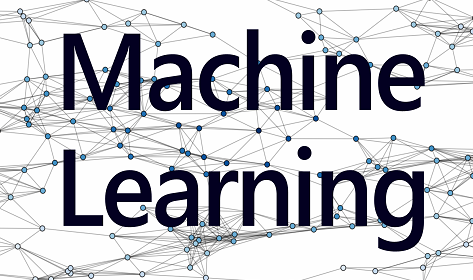Contents
In a world that constantly demands innovation and adaptability, being smart is more valuable than ever. While intelligence is often perceived as an innate trait, there are numerous strategies and habits that can cultivate and strengthen your cognitive abilities. This comprehensive guide delves into the essence of being smart, exploring the various facets of intelligence and providing actionable tips to enhance your mental prowess.
Defining Intelligence: Beyond Academic Prowess
Intelligence encompasses a broader spectrum than mere academic achievement. It is the ability to learn, understand, adapt, and solve problems effectively. True intelligence manifests in various forms, including:
- Cognitive intelligence: The ability to grasp information, analyze concepts, and engage in abstract reasoning.
- Emotional intelligence: The capacity to understand and manage one’s emotions, empathize with others, and build strong relationships.
- Creative intelligence: The ability to think outside the box, generate new ideas, and approach problems from unconventional angles.
- Practical intelligence: The ability to apply knowledge and skills to real-world situations, solving everyday problems effectively.
Cultivating a Growth Mindset: Embracing the Journey of Learning
The belief that intelligence is malleable and can be developed through effort and dedication is known as a growth mindset. This mindset is crucial for being smart, as it fosters a willingness to learn, embrace challenges, and persist in the face of setbacks.
Nurturing Your Brain: Habits for a Smarter You
Just as our bodies require proper nutrition and exercise to function optimally, our brains also demand care and nourishment to thrive. Here are some habits that can enhance your cognitive abilities:
- Engage in regular physical activity: Exercise not only strengthens your body but also improves blood flow to the brain, promoting neurogenesis and enhancing cognitive function.
- Prioritize quality sleep: Sleep is essential for memory consolidation, allowing the brain to process and retain information effectively. Aim for 7-8 hours of quality sleep each night.
- Nourish your brain with a healthy diet: A balanced diet rich in fruits, vegetables, and whole grains provides essential nutrients for optimal brain function.
- Challenge your mind with puzzles and games: Engaging in mentally stimulating activities, such as puzzles, crosswords, and chess, strengthens neural connections and enhances cognitive flexibility.
- Expand your knowledge base through continuous learning: Read books, take courses, and explore new fields of interest. Continuous learning keeps your mind active and fosters intellectual growth.
Embracing Curiosity: The Spark of Innovation
Curiosity is the driving force behind intellectual exploration and innovation. It fuels the desire to learn, question assumptions, and seek out new knowledge. Nurture your curiosity by asking questions, exploring unfamiliar topics, and embracing diverse perspectives.
Overcoming Challenges: Resilience in the Face of Adversity
Being smart is not about avoiding obstacles but about navigating them effectively. Resilience, the ability to bounce back from setbacks and adapt to challenges, is a key component of intelligence. Develop resilience by:
- Maintaining a positive outlook: Focus on the lessons learned from challenges rather than dwelling on failures.
- Learning from mistakes: View mistakes as opportunities for growth and improvement.
- Seeking support: Don’t hesitate to reach out to others for guidance and encouragement.
Conclusion: A Journey of Continuous Growth
Being smart is not a destination but an ongoing journey of learning, adapting, and expanding your intellectual horizons. By embracing a growth mindset, nurturing your brain, cultivating curiosity, and developing resilience, you can empower yourself to become the smartest version of yourself. Remember, intelligence is not a fixed trait but a dynamic capacity that can be cultivated through dedication and perseverance.
FAQs about being smart:
What is intelligence?
Intelligence is the ability to learn, understand, adapt, and solve problems effectively. It encompasses a variety of skills and abilities, including cognitive intelligence, emotional intelligence, creative intelligence, and practical intelligence.
Is intelligence innate or can it be learned?
Intelligence is a complex trait that is influenced by both genetics and environment. While some people are born with a natural predisposition for intelligence, there is a lot that can be done to improve cognitive abilities through learning and effort.
What are some habits of smart people?
Smart people often share a number of habits that contribute to their success. These habits include:
- Engaging in regular physical activity
- Prioritizing quality sleep
- Nourishing their brain with a healthy diet
- Challenging their mind with puzzles and games
- Expanding their knowledge base through continuous learning
- Cultivating curiosity
- Embracing a growth mindset
- Learning from mistakes
- Seeking support when needed
What are some tips for being smarter?
There are a number of things you can do to boost your intelligence, including:
- Get plenty of sleep: Sleep is essential for brain function and memory consolidation. Aim for 7-8 hours of sleep each night.
- Eat a healthy diet: A healthy diet provides the nutrients your brain needs to function at its best.
- Exercise regularly: Exercise improves blood flow to the brain and promotes neurogenesis. Aim for at least 30 minutes of moderate-intensity exercise most days of the week.
- Challenge your mind: Keep your mind active by learning new things, solving puzzles, and playing brain games.
- Be curious: Ask questions and explore new ideas.
- Don’t be afraid to make mistakes: Mistakes are a normal part of the learning process.
- Be persistent: Don’t give up on your goals.
What are some resources for learning more about intelligence?
There are a number of resources available to help you learn more about intelligence, including books, articles, and websites. Here are a few recommendations:
- The book “Moonwalking with Einstein: The Art and Science of Remembering Everything” by Joshua Foer
- The article “How to Be Smarter” by The Atlantic
- The website “BrainHQ”




